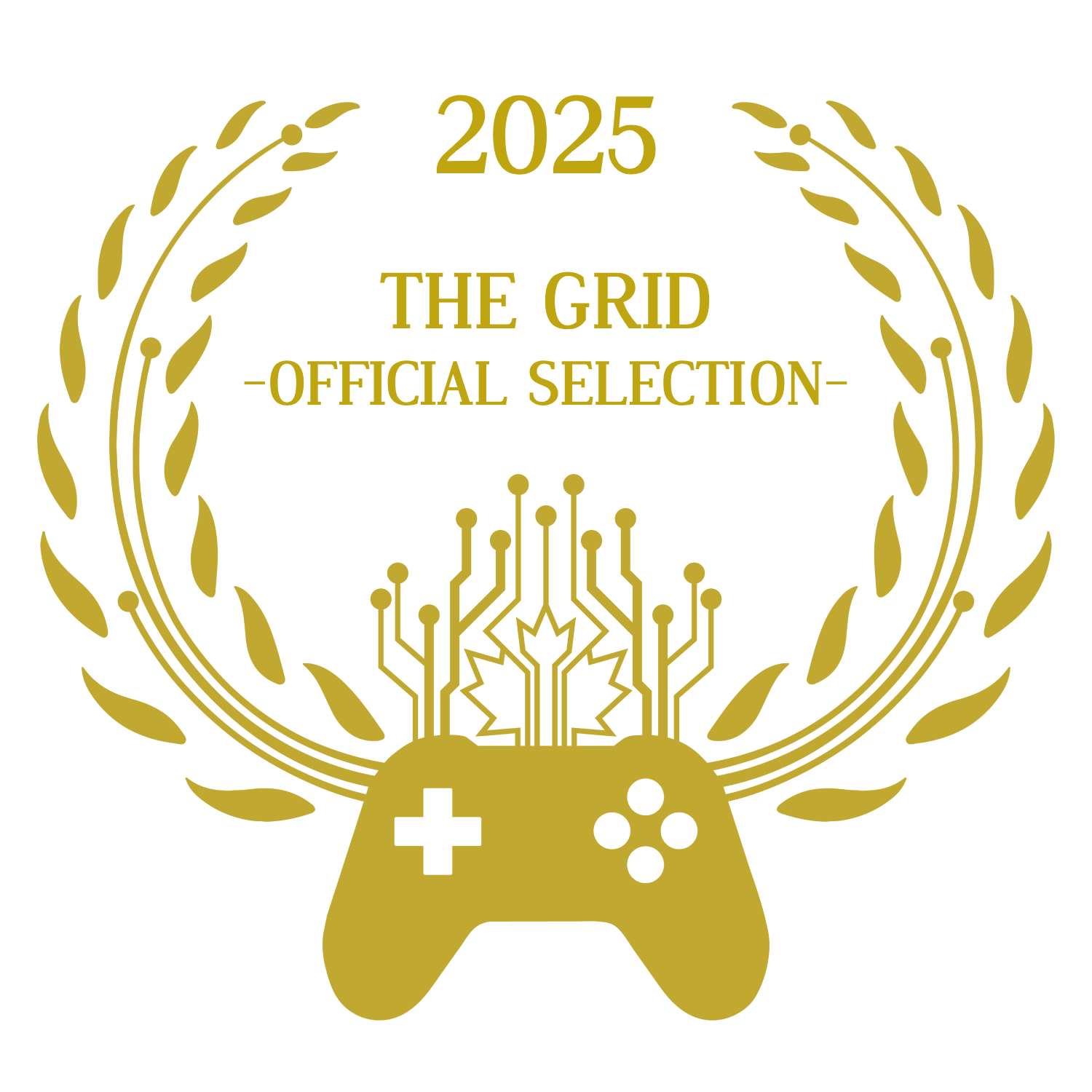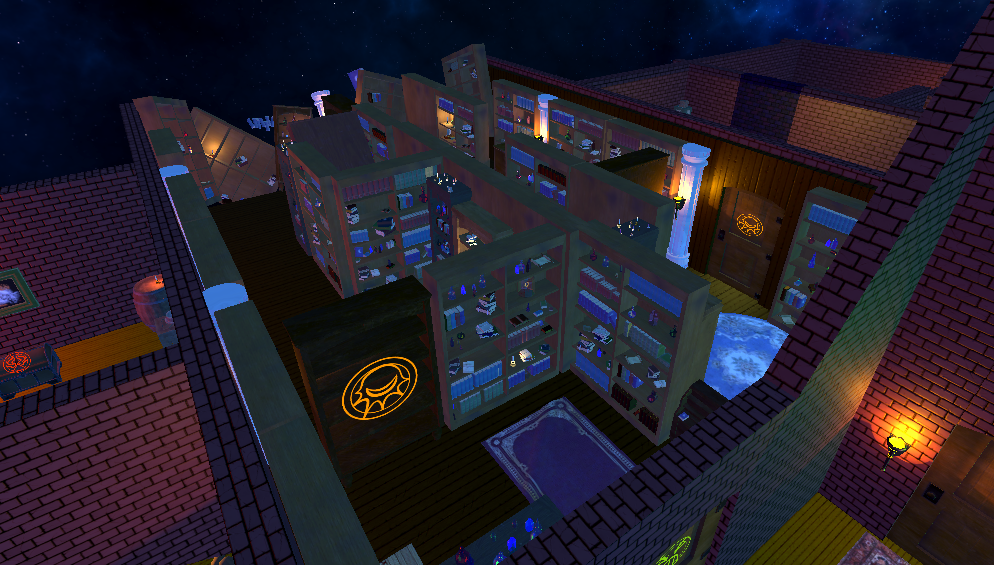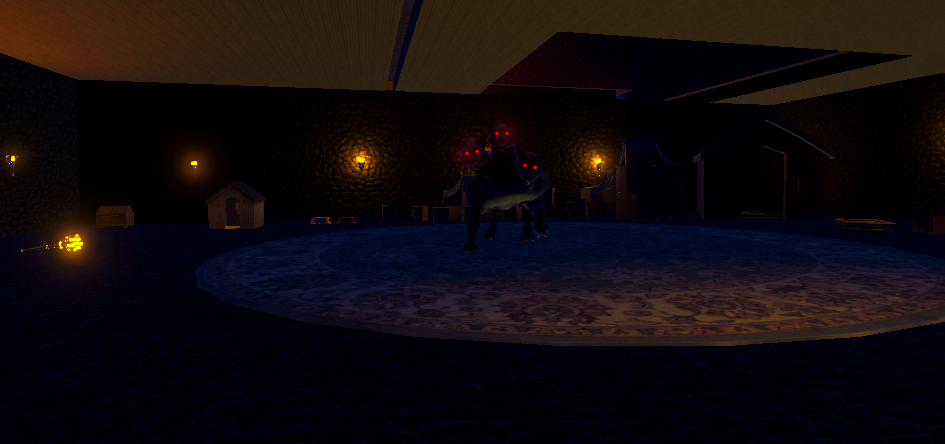
Moodcaster
Game Designer, Technical Director, Lead Programmer
Project Overview!
Moodcaster is a dungeon crawler developed during an AI focused game jam at George Brown College. Players cast spells using their real world expressions, and a facial recognition AI will translate them into spells, creating a unique experience for classic dungeon crawling mechanics. The game was created as a capstone project in Unity using C#, with continued development as a solo project after the initial project was finished.
Roles: Game Designer | Technical Director | Programmer
Team Size: ~20
Engine: Unity
Tools used: GitHub, MorphCast AI, Trello
Status: In active development
Showcased at: Level Up Showcase 2025, The G.R.I.D.
Powered By: MorphCast || https://www.morphcast.com
Design!
The Core concept and gameplay systems were developed during the initial game jam, before expanding the design into a fully realized project.
I helped create and balance the six unique spells tied to the players expressions, to ensure that each spells effect feels immersive and properly reflects the emotion it correlates with. We maintained a kiss/curse element for each spell, to avoid certain spells feeling too powerful, or conversely, too underwhelming.
I collaborated closely on the levels layout and pacing to ensure that gameplay felt dynamic, and emotionally engaging. We wanted to have the environment invoke the various emotions in the player , so we planned certain props and atmosphere at key moments and locations.
Alongside balancing of the core systems, such as enemy encounters, health, potions, and combat values, we maintained an extensive Game Design Document.
Technical Leadership
As the projects Technical Director I led the project’s technical vision and ensured smooth collaboration across the team. I managed the GitHub repository, handling pull requests, merges and resolving conflicts. Additionally I delegated programming tasks through Trello and lead regular programmer meetings.
I set up the project’s framework and initial core systems, then provided support and feedback during the implementation of key features to maintain technical quality. I also maintained build stability for every major milestone.
I implemented core UI elements, and worked closely with the art and audio teams, to ensure their assets integrated seamlessly into the game, while maintaining frequent open communication with the producer and creative director to keep tasks in scope and ensure issues were resolved effectively.
Playtesting & Iteration
We held multiple playtesting sessions to evaluate the player experiences, writing structured playtesting questions and compiling detailed reports to effectively record feedback. By carefully reviewing notes, we identified sources of friction and created bug reports to track and prioritize fixes.
Using this feedback, we iterated on player facing systems such as the spellbook, and spell balancing.
Following public playtests, I implemented key features, including a system that allows the player to delay spellcasting, as well as a navigation tool in the “compass”, ensuring that design responded directly to the players needs.
These iterative cycles allowed me to refine core systems and deliver a smooth and more engaging experience.
Showcasing!
We showcased Moodcaster, presenting our playable build to the public for live demo, at;
Level Up Showcase 2025 (Toronto)
The G.R.I.D. (Toronto Games Week 2025)
I engaged directly with playtesters, answering design and technical questions while observing gameplay to collect real time feedback. We also distributed structured questionnaires to capture player impressions and utilised the feedback to improve future builds of the game.
The showcases were received very positively from both playtesters and judges, validating our design direction, and highlighting the project’s potential.
The Future!
Since the intial project ended, Moodcaster has become a personal passion project that I continue to develop as a solo developer. I couldn’t let the idea die, and since taking it on I have implemented a few key features, including the aforementioned Compass for navigation, and the ability to hold spacebar to delay spellcasting.
Additionally I implemented an in depth tutorial to teach both general gameplay mechanics as well as the use cases for individual spells, and I added a puzzle inspired mechanic to enrich gameplay.
Looking forward, I plan to continue expanding on Moodcaster with additional systems and polish with the goal of eventually releasing the game on Steam.
Alongside development, I am maintaining an up to date Game Design Document, and intend to lunch a public devlog to share progress, design ideas, and lessons I learned throughout my development journey.








